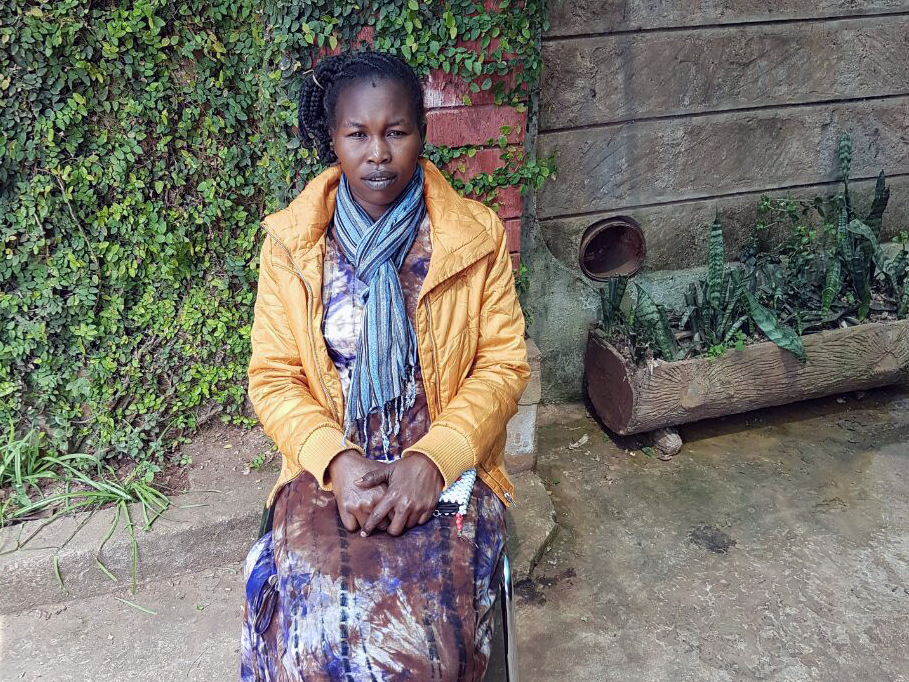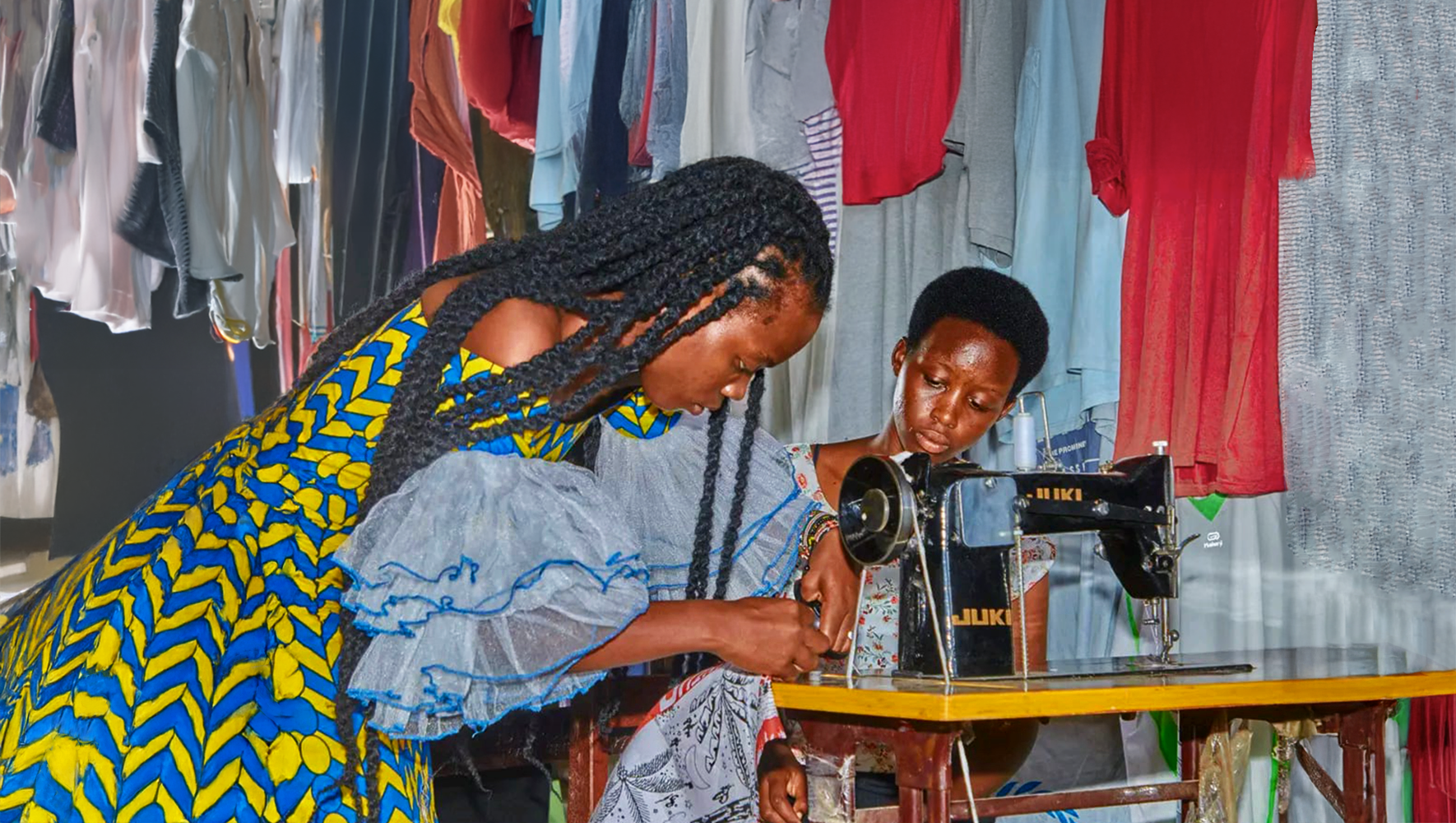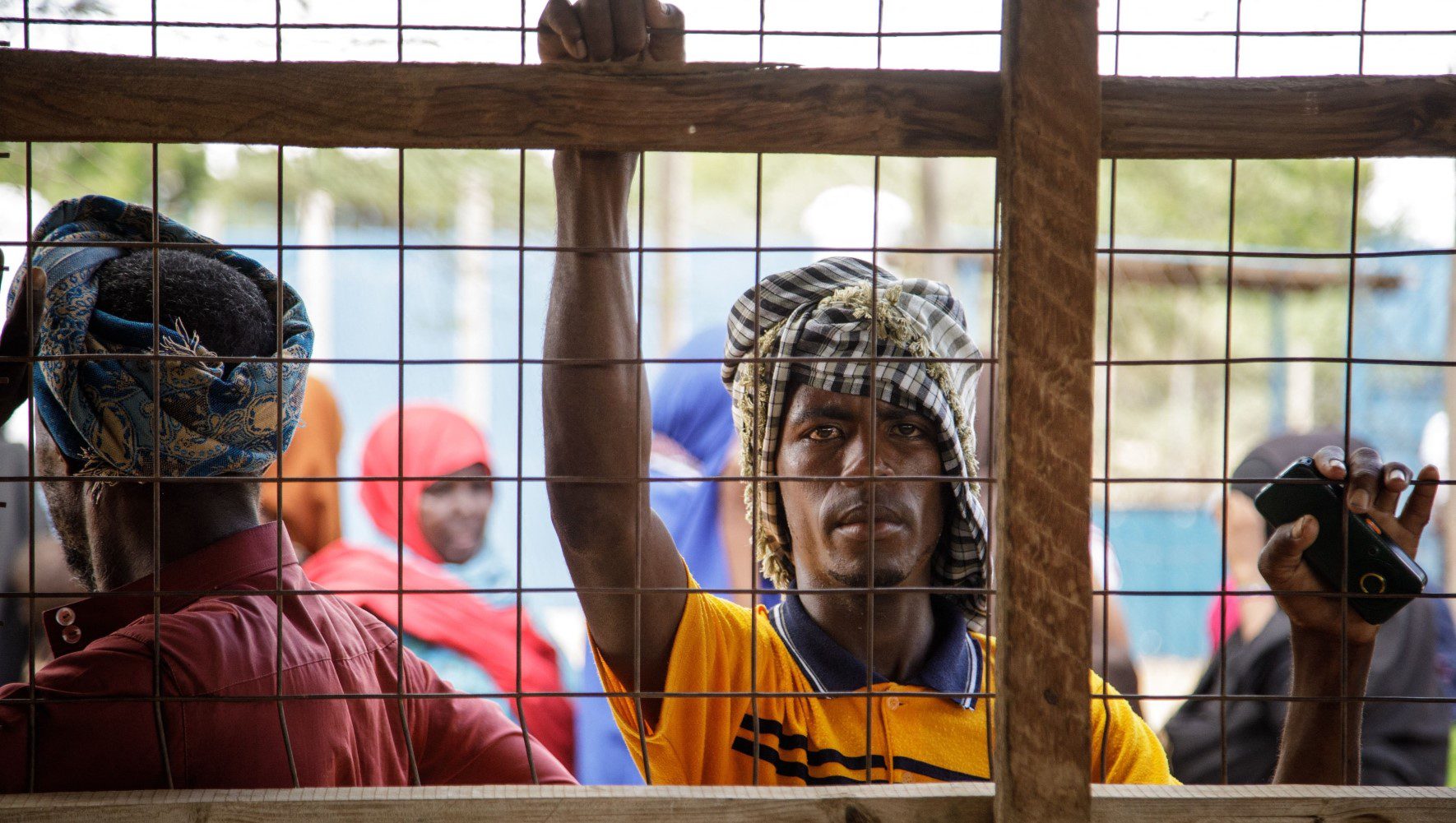Torture is Illegal, But Not Gone. Here’s What HIAS is Doing About It.
By Rachel Nusbaum, HIAS.org
Sep 29, 2016

Mamer*, a torture survivor from South Sudan, is now healing and able to provide for her children thanks to the support and care of HIAS' dedicated staff in Kenya. HIAS Kenya offers counseling and case management to torture survivors, and looks for opportunities to help them build a brighter future.
(HIAS Kenya)
It was 2013 when the soldiers arrived. They stormed into Mamer’s house in South Sudan and demanded to know where her husband was.
They beat her with the butts of their guns. They threatened to kill her. They hauled her off to jail.
In jail, they continued to beat and harass her in an effort to get information from her. She was forced to watch as they executed another inmate.
Then, after five days of imprisonment, she was declared innocent and freed. Fearing for her life, she fled to Kenya with her four children and her brother-in-law.
At first, Mamer* and her family struggled to support themselves as newly arrived refugees in an unfamiliar country. A HIAS Community Outreach Worker learned about Mamer’s situation when working in the field, and referred her to the nearest HIAS office. A HIAS social worker then followed up, conducting an assessment of her case and visiting the family at their home. HIAS was able to step in and assist, providing much needed financial support. She received 38,400 Kenyan shillings (roughly $380) of financial assistance, in four equal instalments over a period of four months.
That may not sound like a lot, but for Mamer it went a long way. She was able to pay her son’s school fees, so he could return to secondary school and continue the education interrupted by the family’s flight from South Sudan.
She was also able to invest the money in her own small business ventures to support herself and her family. Mamer has a business selling okra, which she was able to expand thanks to the financial assistance she received from HIAS. But she didn’t stop there. She also purchased raw materials to start a second business sewing designs on bedcovers. Her aunt helps her to sell the hand-decorated pieces.
Despite an international ban on the use of torture, it is still a heartbreakingly common tactic around the globe. HIAS Kenya took on 180 such cases last year. This year, they already have more than 70 new ones.
“The violence of torture is not only what it does to the body, although the physical effects can be quite severe. The invisible scars torture leaves on the mind and on the spirit can be just as damaging,” said Winnie Gacheru, the psychosocial program manager at HIAS Kenya. “We see intense fear, anger, bitterness, anxiety, depression and symptoms of PTSD amongst victims of torture, which are all important to treat.”
HIAS Kenya offers counseling and case management to torture survivors, and looks for opportunities to help them build a brighter future. “Many victims of torture keep their stories to themselves and the opportunity to share in the safe space of therapy with a professional provides great relief, and that paves way to healing to begin,” Gacheru said.
HIAS Kenya’s work with refugees who have been victims of torture is made possible by support from the United Nations Voluntary Fund for Victims of Torture. This grant allows us to help people like Mamer, and like Mutalu.
Mutalu* is only 22 years old, but his life has also been marked by torture.
Mutalu was a student leader at his university in Ethiopia, where he was working to complete a medical degree. But then Mutalu was arrested by government agents, who accused him of inciting university students to protest against the government. He escaped from prison and, like Mamer and her family, fled to Kenya in search of safety.
But his persecutors followed him to Kenya. They kidnapped him, forcing him back to Ethiopia where he was locked in a solitary prison cell for months. During that time, he was starved, beaten severely and subjected to hard labor, such as digging for stones in a nearby quarry.
Fortunately, Mutalu eventually managed to escape again. He made his way back to Kenya in early 2016 and settled in Nairobi. When a HIAS Kenya social worker went to visit Mutalu at home to assess his situation, Mutalu reported that he was experiencing fear, anxiety, sadness, frequent headaches and stomach pains.
Today, Mutalu is receiving counselling to help him recover from his traumatic experience. HIAS has also provided him with some initial financial assistance, rent and a small stipend for four months, through the UNVFVT fund.
Counselling has helped Mulatu regain his self-esteem. He has started making plans for the future. Thanks to a scholarship offered by the International Rescue Committee, Mulatu is now in school doing a 6-month course in computers.
“I had lost my hope for the future, but now I have it back. I am very grateful to HIAS for that,” said Mutalu. “Now, I feel strong enough to begin to rebuild my life and to take back some of my independence.”
*Names have been changed to protect the identities of the clients



